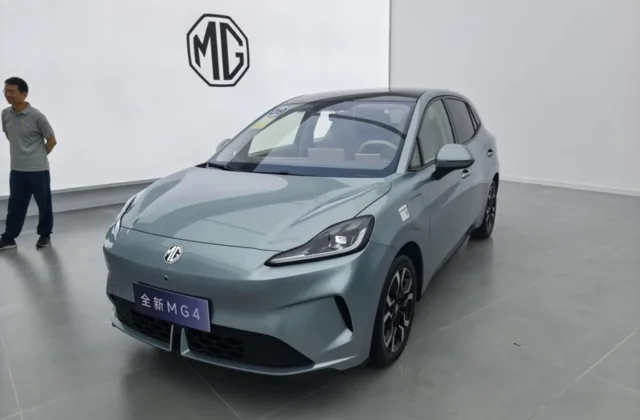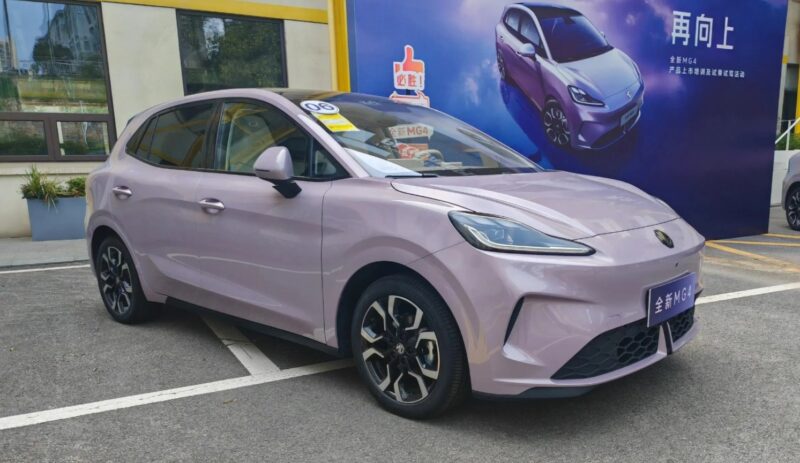The General Manager of MG has confirmed that the updated MG4 electric hatchback will feature a semi-solid-state battery developed by QingTao Energy, making it the first EV to adopt such technology in mass production. However, since the announcement, the battery’s specifications—particularly its CLTC-rated range of 537 kilometres and an energy density of 180 Wh/kg—have sparked online discussion about whether the pack truly qualifies as a semi-solid-state battery.
This article explains what defines a semi-solid-state battery, how the MG4’s implementation compares to others, and why its energy density remains within conventional lithium-ion territory.
What Is a semi-solid-state battery?
Semi-solid-state batteries reduce the amount of liquid electrolyte used in traditional lithium-ion cells by incorporating gel-like or semi-solid electrolytes. This hybrid design aims to combine the safety and thermal stability advantages of solid-state batteries with the manufacturing simplicity and ion mobility benefits of liquid electrolytes.
Although there is no strict industry-wide definition, batteries with less than approximately 10% liquid electrolyte are commonly considered semi-solid-state, accordingly to Mitsui & Co. Global Strategic Studies Institute. Such batteries often demonstrate improved safety, better performance at low temperatures, and enhanced structural integrity compared to conventional liquid lithium-ion batteries.
MG4’s battery in context
The MG4’s QingTao-supplied battery uses only 5% liquid electrolyte, placing it within the semi-solid-state category. It passed a 360-degree puncture safety test and claims 13.8% better range retention at –7°C compared to conventional lithium-iron-phosphate (LFP) batteries. The battery pack is rated at 70 kWh with an energy density of 180 Wh/kg and delivers a 537 km CLTC range.
Why MG4’s semi-solid state battery offers a moderate range
While some semi-solid-state batteries deliver high energy density and long range, the MG4’s battery offers more modest figures, in line with its focus on cost-effectiveness and safety. With an energy density of 183 Wh/kg, it falls between other Chinese EVs, such as the Geely EX5 (192 Wh/kg) and the BYD Han EV (155 Wh/kg). MG has not disclosed the exact battery chemistry for the 70 kWh semi-solid-state pack, but the energy density is consistent with lithium-iron-phosphate (LFP)-based designs. If the battery does use LFP, this would align with the MG4’s emphasis on cold-weather performance, longevity, and affordability over maximum driving range.
Semi-solid-state technology primarily focuses on improving the electrolyte structure and safety, rather than guaranteeing an increase in range or energy density. The range depends on various factors, including chemistry, vehicle design, and the size of the battery pack.
Comparing semi-solid-state batteries in electric vehicles
| Model | Manufacturer | Battery supplier | Liquid electrolyte content | Energy density (Wh/kg) | Battery capacity | Range (CLTC) | Availability |
|---|---|---|---|---|---|---|---|
| MG4 (2025) | MG (SAIC) | QingTao Energy | ~5% | 180 | 70 kWh | 537 km | Mass production starting 2025 in China |
| ET5 (150 kWh option) | NIO | WeLion | ~10–15% | 360 | 150 kWh | 1,055 km | Limited rental |
| IM L6 Max Lightyear | IM Motors | QingTao Energy | ~10% | ~214 | 133 kWh | 1,000 km | Limited production |
Why MG4’s battery qualifies despite lower energy density
Energy density is only one factor defining a semi-solid-state battery. The MG4’s battery uses a minimal amount of liquid electrolyte, a key technical marker, and has been tested for safety and cold-weather performance. Unlike full solid-state batteries, which use no liquid electrolyte and often target energy densities above 300 Wh/kg, semi-solid-state batteries encompass a range of designs with varying densities.
Editor’s notes
MG’s approach emphasises bringing the benefits of semi-solid-state technology—such as enhanced safety and better cold climate range retention—to a broader market segment, rather than maximising energy density.
The MG4’s adoption of a 5% liquid semi-solid-state battery marks an important milestone in electric vehicle battery development. While its energy density and range are lower than those of some premium models listed in the table above, MG is pioneering the mass production of semi-solid-state batteries for affordable EVs, potentially expanding this technology beyond niche, high-end applications.
Follow us for ev updates









